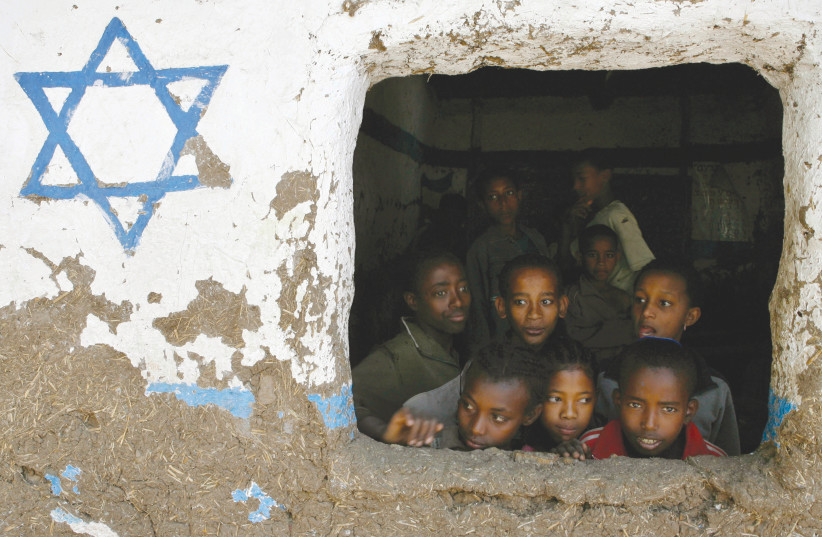“The best arguments in the world won’t change a person’s mind. The only thing that can do that is a good story.” – Richard Powers, The Overstory
Between November 21, 1984, and January 5, 1985, 8,000 Ethiopian Jews were flown from Sudan to Israel in what became known as Operation Moses. It was, by necessity, a clandestine operation, and in fact was ended due to word of it leaking out and becoming public knowledge.
Arranged in secret, it had not been possible to inform the Israeli public in advance about who would shortly be joining them as the latest wave of olim to their country. As a result, the Israeli public was, and in fact remains, ill-informed as to who these strange people were, why they had come, and what they had endured before their arrival in Israel.
Indeed, strange they were. They had come from a way of life that hadn’t been experienced in the Western world for more than a thousand years. Their villages had no electricity. They built their homes from sticks and mud. They walked to the nearest river to bathe or launder their clothes. Life was based mainly on growing their own food, raising their own animals, and cooking over a fire.
That they were also a different color did not help their integration in Israel. But they had something very important in common with those they were joining in Israel. They were Jews. They kept the Sabbath, ate only kosher food, attended synagogue where prayers were read from the same Torah, celebrated all the Jewish holidays that had existed before they became isolated from the rest of world Jewry 2,500 years ago, and, like Jews the world over, repeated the same prayer: “Next year in Jerusalem.” Also like Jews the world over, they suffered persecution in the land where they were born.

When rumors began to spread among Ethiopia’s Jews that if they could get to Sudan they might be brought from there to the longed-for Jerusalem, they left behind their homes and everything they knew and began to walk. Whole families set out, from the most elderly to the tiniest infant. Forbidden to leave Ethiopia, or even to move about without written permission from the authorities, they walked in fear of discovery, walking only at night, and in silence.
It was by chance that I heard anything about how they came to be in Israel. The story of their walk – ill-provisioned, night after night, for weeks or months, people dropping on the way from exhaustion, dehydration, starvation – shocked and dismayed me. How is it this was not widely known? What was done to embrace and heal them after their ordeal? In fact, what awaited them was another ordeal: learning to adjust to life in a different time-scape, to an entirely different way of life in a modern country, and learning how to fit into a population that did not want to embrace them.
With the fervent belief that experiencing another’s pain brings understanding, empathy and acceptance, I determined to bring this Ethiopian experience to others.
I have written a book based on interviews with those who made the journey, and on many personal accounts. Ascending tells the story of Anika, an eight-year-old Jewish girl.
The reader experiences her and her family’s life in Ethiopia, the terrible journey on foot to Sudan, and their arrival in Israel. It follows Anika as she changes and becomes Israeli, becomes a soldier, a mother, and tries to teach her children to fix the ills of society.
Ascending is a novel I wrote after researching the subject during a trip to Ethiopia with a group from ESRA, Israel’s English-Speaking Residents Association.
The characters are fictional. The events are real. It is a story you should know, and is available on Kindle or from Amazon as a paperback: www.amazon.com/author/21mimit ■
